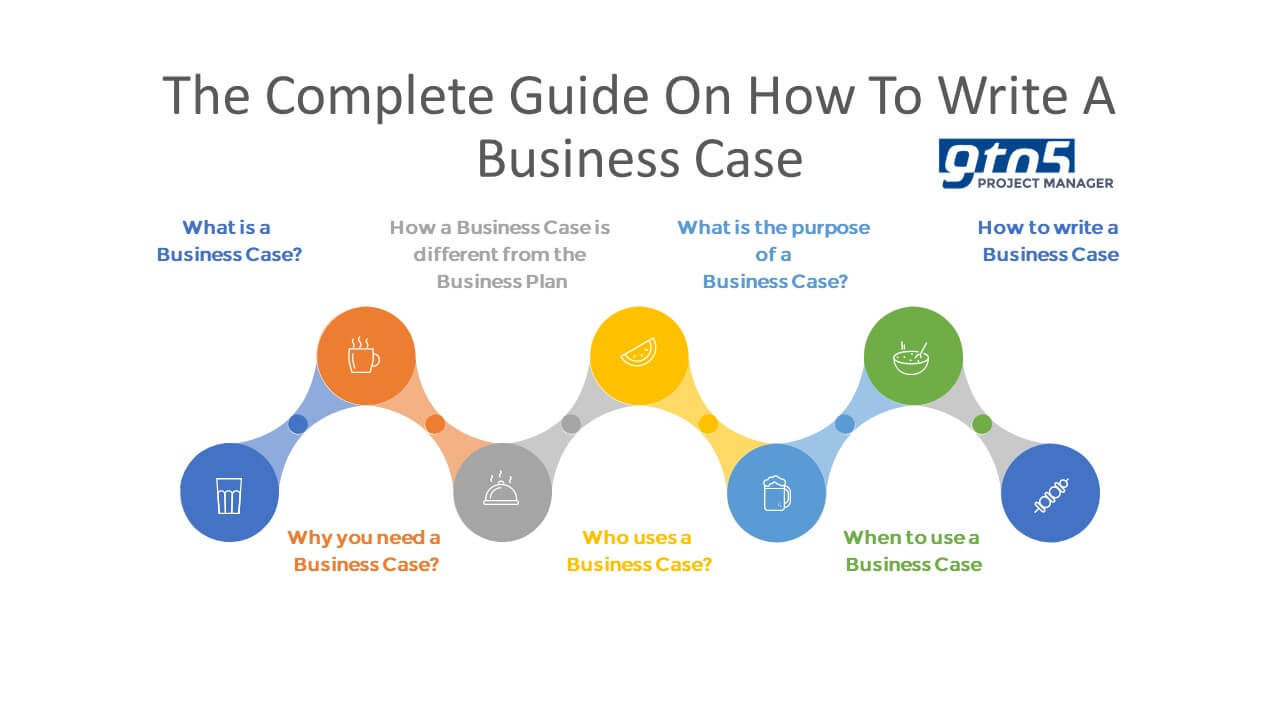A business case is a critical part that forms the skeletal framework of almost any project. Projects with poorly written business cases often get lower returns, making business case writing a top skill for project managers to master. This guide will answer your questions on how to write a business case and the following items:
- What is a business case?
- Why you need a business case
- How a business case is different from the business plan
- Who uses a business case?
- What is the purpose of a business case?
- When to use a business case
- How to write a business case and what are the most import components
What is a business case?
A business case is a formal project document that contains a detailed analysis of opportunities, market alternatives, financial profiles, and project strategies. Think of it as a comprehensive proposal meant to outline the most profitable course of action, and show clients/stakeholders how the project is a sound investment.
Why you need a business case
Away from simply evaluating different project options, a business case examines the profitability of the opportunities at hand, associated risks, financial implications, and timelines for the project vis-à-vis both current and future organizational vision. Writing it in advance clarifies the scope, allowing you to focus more on the most viable pathway for optimal return of interest.
A Business Case is different from the Business Plan
A business case and a business plan are both crucial when soliciting support from key business decision-makers. However, these two fundamentally differ from each other, especially in terms of both purpose and focus.
As you might already know, business plans are critical documents that provide a blueprint for a specific business that contains up to 5-year projections. In other words, business plans tend to have a much deeper focus compared to what a business case covers.
Some of the primary assessments included in a business plan but aren't covered by business cases include customer segmentation, competitor analysis, business model overview, long-term cash flow, and marketing plans.
That said, the basic set of assessments included in a business plan are to solicit internal budget approval and provide strategy prioritization.
Therefore, most business case presentations often target internal stakeholders while business plans are meant for shareholders and investors. Keep in mind that a business case tries to justify a specific implementation strategy, whereas a business plan seeks investment approval.
When to use a Business Case
A business case comes in handy when one needs approval project resources and budget. Preparing it in advance enables you to justify this need and convince your project sponsor, client, or relevant stakeholder for authorization before the project kicks off.
How to Write a Business Case
A business case is a project communication tool that generally seeks support, meaning that its writing process needs to be well-executed. Given its influential role in strategic decision-making, here are the most vital steps that will ensure you create a solid business case.
- Thoroughly assess all logistics relating to the identified opportunity
- Analyze and list feasible alternative options for the business/project
- Evaluate and pick the best option that’s economical and has minimal risks
- Draw a concrete implementation plan for the preferred option
- Confirm all your data and prepare your business case recommendation for presentation
When writing, ensure that your business case explains:
- The main objectives
- The business problem to be addressed
- A contextualized background for the investment opportunity
- How the opportunity aligns with the organizational vision
- All possible financial implications
- All non-financial benefits for the proposed course of action
- Strategic approaches and project path for the recommended option
- Risk mitigation plans for the investment
- Possibility of any uncertainties
- Recommended alternatives to make decision-making easier
Who uses a Business Case?
Business cases are usually meant for managerial consumption, especially by those in charge of decision-making. That includes project sponsors, organizational executives, board of management, and interested stakeholders.
In other cases, the department of portfolio management also uses this document to filter projects that align with the overall strategic plan for the business.
What is the purpose of a Business Case?
By now, you can already tell that a business case generally serves the purpose of justifying a specific investment by proving its worth in terms of business value to the organization.
The most important components of a Business Case
Now that you already know what to consider when writing a business case, here is a quick highlight of the most crucial components to make your business case more professional:
- EXECUTIVE SUMMARY
- FINANCE
- Financial Appraisal
- Sensitivity Analysis
- PROJECT DEFINITION
- Background information
- Business Objective
- Benefits and Limitations
- Option Identification & Selection
- Scope, Impact, and interdependencies
- Outline Plan
- Market Assessment
- Risk Assessment
- Project Approach
- Purchasing Strategy
- PROJECT ORGANIZATION
- Project Governance
- Progress Reporting
Now that you know the how to write a business plan you need to get ready for the read of the project because if the business case stacks up your got a project to manage.

